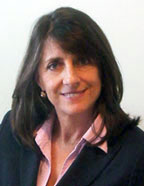MH- That’s a big increase. What has caused this escalation?
Dr. Tabacoff- Many reasons combined. For one thing, awareness of the problem has soared as educators and health professionals have become more sophisticated and knowledgeable about neurological development. We have learned that children having difficulties in school can often be helped if we can assess, diagnose and remediate certain learning disabilities. Another factor is that less phonics are being taught in school, in favor of whole language systems which also makes it difficult for some LD students. And the fact that more parents expect their children to go to college than in years past, often highlights their children’s difficulties.
MH- What are some of the causes of Learning Disabilities?
Dr. Tabacoff- There may be as many different causes as there are people. We do know that 50% of children identified as having LD have inherited the problem. That’s why a good family history of a child suspected of having a learning disability is so important. Other possible causes are maternal illness, substance abuse, smoking or drinking during early pregnancy as well as premature birth, low birth weight and prolonged labor and/or lack of oxygen during birth. Environmental hazards such as lead poisoning, and head injuries are also suspected causal agents.
MH- What are some typical learning disabilities?
Dr. Tabacoff- Language disabilities encompassing auditory processing problems, developmental phonological disabilities and receptive or expressive language problems; reading disabilities including dyslexia, sequencing problems, etc.; writing disabilities such as dysgraphia, difficulty organizing thought on paper, grapho-motor speed and dyspraxia (poor motor planning); math disabilities- Dyscalculia, visual spatial problems, sequencing problems; and ADHD- attentional difficulties, hyperactivity, unfocused behavior and daydreaming.
MH- Do learning disabilities only affect school performance?
Dr. Tabacoff- Oh no, and this is the real tragedy. Children who have difficulties in school, who see their peers advancing and succeeding while they struggle and suffer, invariably begin to feel bad about themselves. This is especially true when no authority figure, such as a teacher or parent recognizes the true problem. Children are sometimes disciplined in the mistaken belief that they are being lazy; expectations for them are lowered and the world around them begins to seem hostile. Their self-esteem crumbles and this creates a viscous cycle of poor performance in school, frustration and sadness which only exacerbates the feelings of inadequacy resulting in worsening school performance. Educators need to be keenly aware of their charges progress vs. expectations and parents need to be proactive and educate themselves about their child’s appropriate milestone accomplishments. If problems are caught early, much can be done to overcome learning disabilities.
MH- What should a parent do if they suspect a problem?
Dr. Tabacoff- First, stay in close contact with their child’s school for information on determining if their child has developmental delays. They should also speak with their pediatrician or contact the local, state or national LD association and/or the district office of Special Education for information. An expert assessment needs to be made. There is a Federal Law; the Individuals with Disabilities Act (IDEA); which requires free and appropriate education for all children with disabilities. This includes early intervention for preschoolers who need special services. But receiving a thorough, expert and caring assessment is easier said than done. Experts in the field are, in my opinion, the best choice.
MH- What does a good assessment entail?
Dr. Tabacoff- It’s a complicated and exacting process which requires dedicated professionals who truly care and have excellent child relation skills as well as cutting edge knowlegde of the best ways to test. To begin, the examiner constructs a developmental history of the child. Direct interaction with the child is also necessary. Psycho-educational assessments, which include cognitive, academic, visual spatial, motor, and language evaluations are then given over a period of time depending on the individual. Behavioral observations as well as parental and teacher evaluations are then factored in and coordination of all information gathered is made in a report format that parents, educators and other specialists can review. Once a “learning profile” is established for the child, a strategy of remediation and support is required to actively overcome any weaknesses uncovered. Teachers must be made to understand any special needs required. Accommodations such as extended testing time, help with note taking, etc. must be implemented. Tutors or other specialists may also be needed. When he was elected, President Bush said, “No child shall be left behind”. We have the ability and understanding to make those words come true. In time every child with a learning disability can be helped to enjoy a happy, fruitful life, but we must act aggressively.
MH- Thank you Dr. Tabacoff.


